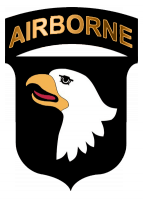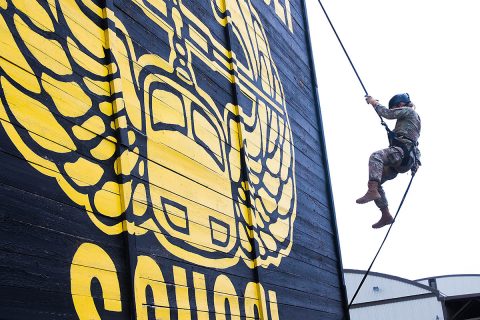
 Fort Campbell, KY – National Nurses Week is a time for everyone to recognize the vast contributions and positive impact of more than four million registered nurses in the United States.
Fort Campbell, KY – National Nurses Week is a time for everyone to recognize the vast contributions and positive impact of more than four million registered nurses in the United States.
In 1993, National Nurses Week was established and is a time to celebrate and elevate the nursing profession. Each year, the celebration begins on May 6th, ending on May 12th, Florence Nightingale’s birthday.

Florence Nightingale was a prominent figure in nursing who greatly affected 19th and 20th-century policies pertaining to patient care.
Born to an affluent family in Florence, Italy, May 12th, 1820, she followed her God-given call to service through nursing as she grew up.
As a young adult, she defied the societal norms of the Victorian Era, opting to pursue a career in patient care, rather than to simply marry to uphold her social class standing.
Throughout her life, Nightingale cared for thousands of patients. One of many examples of her selfless service came during the Crimean War.
During that time, she and her team of nurses improved the unsanitary conditions at a British base hospital, significantly improving the quality of life while also reducing the death count. She tirelessly devoted her life to preventing disease, and ensured safe and compassionate treatment for the poor and the suffering.

Nurses, in many ways, constitute the collective face of healthcare. There are dozens of nursing specialties categorized by level of certification or education, population, or medical specialty.
Capt. Lisa Kasper, an Emergency Room Nurse assigned to 3rd Brigade Combat Team, 101st Airborne Division (Air Assault), joined the Army in August 2010, after graduating in 2008 from the College of St. Scholastica, in Duluth, Minnesota with a degree in Nursing. A Turtle Lake, Wisc. native, Kasper decided to serve her nation by providing compassionate treatment to America’s Soldier during a time of war.
As a result of entering the Army as a direct commissioned officer, the transition from civilian life to Army Officer came with a bit of a learning curve. Her first assignment following her officer initial entry training program was at Brooke Army Medical Center, in San Antonio, Texas, where she served as an Emergency Room Nurse.
“I enjoy being a nurse because it makes me happy to care for others,” Kasper said. “Knowing that I am able to make an impact on someone’s life makes my job worthwhile.”

Making the transition from providing care in an Army hospital stateside, she later deployed to Maz?r-i-Shar?f, Afghanistan in 2012, in support of Operation Enduring Freedom.
“I deployed with the 8th Forward Surgical Team,” said Kasper. “We augmented a German role-two hospital. As one of the only Americans working with the Germans, it was such a great opportunity to not only provide great care to the wounded, but to also work with soldiers from other nations.”
As a Solider in world’s premier Air Assault Division, she understood the importance of upholding the division standards, and attended training at the Sabalauski Air Assault School. During the ten-day school, she trained on Air Assault operations, sling-load operations, and rappelling.
Graduates of the school are able to make maximum use of helicopter assets in training and in combat to support their unit operations.

“Air Assault School was a great experience,” said Kasper. “As a nurse we are very seldom given the opportunity to do any tactical training.” “It was always a goal of mine to complete the school,” she continued.
Sometimes called the “ten toughest days in the Army,” Air Assault School frequently releases students from training, for failure to meet the course standards.
“There were times while I was in the school where I wondered why I volunteered to do this,” Kasper said. “The last day was rewarding, since I was able to rappel from a hovering helicopter. Overall, it was a great opportunity that many [Army] nurses will never get.”
“It helped me to be a better Soldier and understand what the Soldiers are going through as well as the health challenges they face due to the intensity of their training.”
Being the only nurse in the Rakkasans, Kasper noted feelings of uncertainty prior to arriving to the unit.
“Serving as the only nurse in the brigade was very daunting at first,” Kasper said. “I was nervous that I was not going to fit in with the infantry soldiers.” “After arriving, I slowly developed my role as the brigade nurse and established standards for what leaders could expect from me,” she continued.
I truly enjoy my job as the brigade nurse, knowing that I am able to make a difference and assist Soldiers in many different ways. I enjoy being able to help others.”



